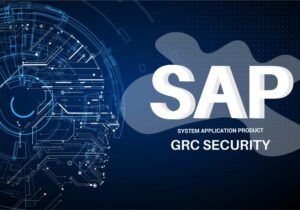SAP Grc Security
Organisations can manage their operations in a secure and compliant manner with the aid of a collection of tools and procedures known as SAP GRC, or Governance, Risk, and Compliance. In the context of SAP GRC, security involves making sure that sensitive data is handled properly and that the organization’s SAP systems are shielded from unwanted access.
Features for risk mitigation, division of tasks (SoD) analysis, and user access management are frequently found in SAP GRC Security. Setting up controls is essential to avoiding conflicts of interest and making sure users have the right amount of access for their responsibilities without going overboard, which could pose a risk.
Within the SAP environment, user roles and authorizations are defined and managed through the use of user access management. It is imperative for security that users have the minimum amount of permissions necessary to carry out their job duties while still having the appropriate level of access.
Segregation of Duties (SoD) Analysis
In GRC security, SoD is a key idea. It entails checking for and averting potential conflicts that might occur when one person has access to several features that, when used together, might result in fraud or mistakes. In order to detect and resolve these issues, GRC systems frequently automate SoD tests.
Emergency Access Management
Users may occasionally require momentary emergency access to specific features. Solutions for GRC Security offer a regulated method for approving brief enhanced access and guaranteeing that these actions are tracked and examined.
Risk Assessment and Mitigation
As part of GRC Security, risks related to system configurations and user access are evaluated and mitigated. This can entail determining which jobs or transactions are high-risk and putting precautions in place to lower those risks.
Policy Enforcement
It’s crucial to create and implement security policies in the SAP system. This entails establishing authentication procedures, password regulations, and other security-related rules.


































